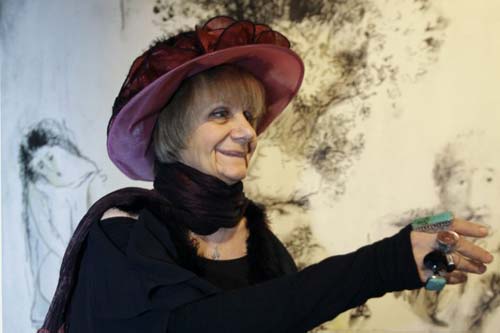Ludmilla Petrushevskaya is no stranger to controversy. Earlier this year, the Russian media reported that she has been accused for promoting drug use among the minors. This could be a potentially criminal offense.
She had also been under surveillance. During an interview with the Kirkus Review, she commented “Moscow papers published lists of people whose phones used to be tapped and who used to be under constant surveillance. I was on both lists.”
Moreover, in 1991, she faced indictment for 6 months after sending a letter to Gorbachev criticizing his military action in Latvia and Lithuania. “I was charged with felony—insulting the President—and faced from two to five years in jail. We hid at the dacha all summer; kept the lights off; I refused all invitations for public appearances under the pretext that the children were ill.”
She had also a massive crush on Chekov and Pushkin. Upon composing a piece about Pushkin’s death, she happened to be overtaken by “popular hatred”. Apparently, “Russians treat these classics with unchanging passion and jealousy”.
Yes, Petrushevskaya’s rebellion has incurred the hatred of the state but it has also attracted the devotion of a large fanbase (mostly composed of females). Anna Summer’s article on “The New Yorker” pointed out the prevalence of females in Petrushevskaya’s work. They are presented in “mental and emotional turmoil that their real life counterparts cannot help but appear and demand that she hear them out”.
Helen Summers also points out that in her storytelling “an exhausted old woman was replaced by a goddess of wisdom”.
In her life, she has reached a martyrdom only afforded to the dead.

![5 Reasons You Should Travel Alone Airplane [image source: chau nguyen/ http://thedevilhatessweatpants.blogspot.com.au ], crowd ink, crowdink, crowdink.com, crowdink.com.au](https://crowdink.com/wp-content/uploads/2016/08/Chau-airplane-218x150.jpg)




























![5 Reasons You Should Travel Alone Airplane [image source: chau nguyen/ http://thedevilhatessweatpants.blogspot.com.au ], crowd ink, crowdink, crowdink.com, crowdink.com.au](https://crowdink.com/wp-content/uploads/2016/08/Chau-airplane-100x70.jpg)


